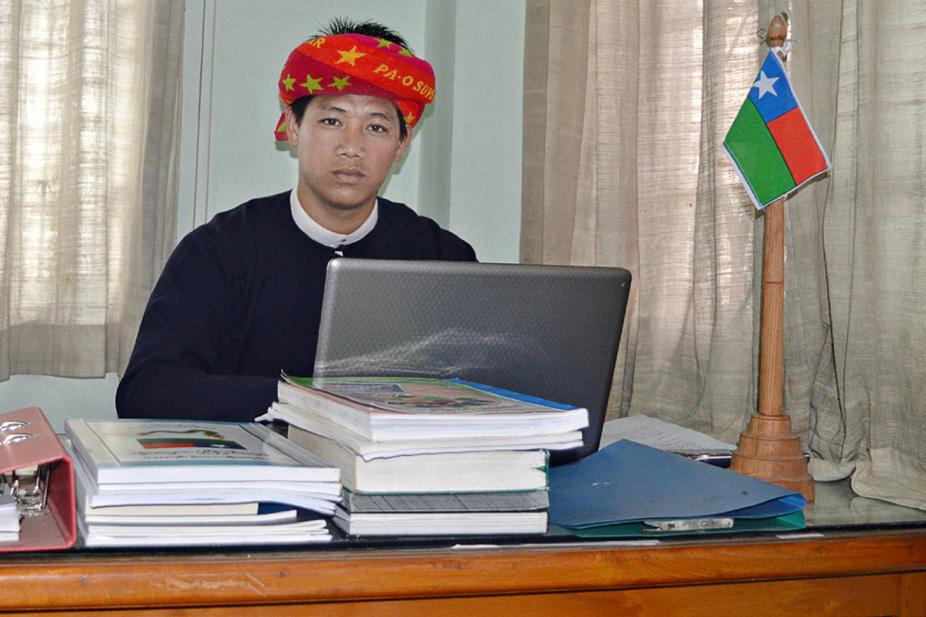
3 minute read
9. Women’s Participation is increasing, but they are not the Main Decision Makers

Yoke Village Overlook, Hopong Township, December 2019
Khun Saung Shwe is a member of the Central Committee of the Pa-O National Organization (PNO) and also a member of the Secretary supporting team. He explained that the PNO participates in initiatives to include women in governance and to provide more educational opportunities. Also, he mentioned that gender quotas mandating 30% women’s political participation in the administrative sector, or in the Hluttaw (parliament) is a good goal, but implementation strategies are still being developed. More village development committees include women now, however, there are advantages and disadvantages: He pointed out that “Women get more experiences, and gain self-confidence. The community starts to acknowledge their capability as well. But the role of women is mostly as members.”
Men and women make joint decisions regarding livelihoods in most households in the Pa-O region, although most business operations are owned and run by men. Khun Saung Shwe did note one exception: Ywut Pone Thee Coffee, which is popular in Pinlaung Township. It is operated by a woman, although she is not a local Pa-O woman. Other small businesses run by women include grocery shops, restaurants, beauty shops, and tailor shops.
He identified several reasons that men control the decision making process for agricultural business: men put more effort into business, women are afraid their businesses would not be successful if they disagree with men’s decisions, brokers do not always accept women’s negotiation strategies, and women’s technical knowledge of farming methods is lower. However, women’s participation in agricultural business is important, as men and women divide the labour between them, and many women manage household finances. In Khun Saung Shwe’s opinion, “Emergence of women leaders in the business sector would lead to women’s participation in politics and governance in a shorter time.”
Women’s participation in village affairs is increasing, but it is still limited. According to Khun Saung Shwe, some women do not participate in village affairs because they are not interested. Also, women do not take the lead in village administration due to fear regarding personal safety when they are involved in settling disputes, such as addressing drunken fights; the rule of law is weak. He highlighted the historical context of the Pa-O SAZ, as there was conflict until 1991. After 1991, women became involved in village administration, as regional security improved. Now more women are participating in village meetings and taking an interest in village affairs.
From Khun Saung Shwe’s perspective, decisions are made at the village level based upon the interests of the whole community, rather than to address men’s or women’s specific concerns. Therefore, women and youth may be marginalized, as decisions are made based upon a system where one representative per household attends village meetings. Women’s inclusion on village committees is not a factor considered in the decision making process.
“It is not like there are traditions that forbid women’s participation, but women worrying and being afraid is in their genes. Even though there are many women’s rights activities today, there are situations where women hesitate to participate. Therefore, we need to raise awareness for such kind of thing. We need to provide awareness to both men and women at the same time.”










